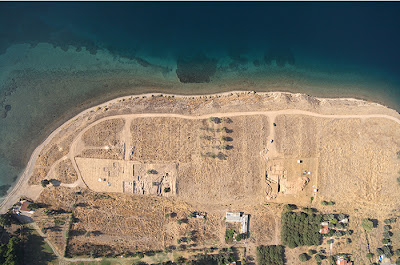The Greek polis, as a political and territorial entity, is a remarkable social organisation that emerged in the Greek world after the collapse of the Mycenaean palace system and the “transition” period that followed. Because of its very distinctive character within the ancient world, the city-state dominates the study of Greek history. But how did this start and how can it be recorded?
 |
| Lefkandi on the island of Euboea and was extensively occupied since the Early Bronze Age (roughly 2100 BC) to the end of the Geometric period (ca 700 BC) [Credit: ULB] |
Read the rest of this article...
No comments:
Post a Comment
Note: Only a member of this blog may post a comment.